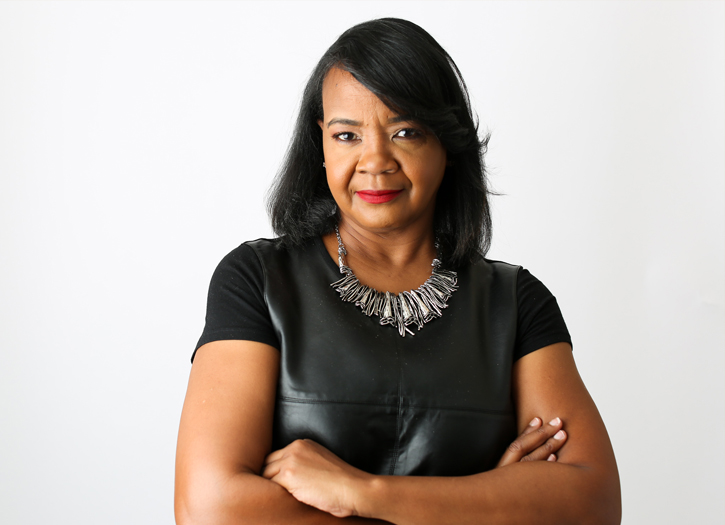I am a native New Yorker who grew up in an (NYCHA) New York City Housing Authority development in East New York. In the process, I raised my son as a single mom, and when my sister passed away in 2001, I stepped up to help raise her children.
Please tell us about yourself and what qualifies you to be the next mayor of New York
I obtained my (M.B.A.) Master of Business Administration at Long Island University. I have experience working with Fortune 500 Firms, and I also manage a non-profit that I started to assist minority and small business owners. Also, not to mention, on top of the many duties, I am running my own construction firm.
As an exclusive business owner, I know how to create opportunities from the ground floor to the executive office.
I know how to lead, and I also know what it takes to complete any difficult task. I have worked to create jobs, know what it will take to improve NYCHA, and know that if we want to create true equity within this city, the first step is to ensure diversity dollars are going into pot of opportunity matches who has access to the opportunity to grow their firms. This will ensure that everyone receives a fair chance to live.
We are at a pivotal moment in this city, and it is time to stop looking at political aspects, business, and life experiences. It’s time to ask ourselves how someone’s political and business expertise has helped our communities.
We need leaders with lived experienced and I have a full lived experience in this city. Who is better to know how to fix a broken system than someone who the system has severely impacted?
Mayor David Dinkins was the first African American man elected to run the city of New York, and you are seeking to become the first African American woman. Historically, how significant is that to you?
During this time, when we elected the first woman of color as Vice President, it is incredibly significant. It is essential not only because of me being a woman but being a woman of color, it is an example to the next generation that anything is possible.
As someone who grew up in public housing, I want every young person who lives in public housing to look at me and know I am them. I want them to know that they matter and want them to see that they’re valuable and can achieve success no matter what. So, the significance is not just me being a woman of color but also from public housing.
Without a political background, why would you go straight for the top spot and not take the traditional approach by running for city council or Brooklyn borough president to gain some experience in politics?
This is an excellent question about the experience and one that’s asked so often. We have a political system that is broken and does not work. As someone looking for a change, I hadn’t desired to run for City Council or Borough President to learn about a political system that does not work. I have no interest in developing preconceived notions of how things are supposed to operate because the system has not been working and especially for most people in this city.
My goal is to bring new ideas and perspectives to the government. It brings new concepts that haven’t been tainted or broken by the systems operated in the past but now look towards the future to incorporate policies and procedures that improve the lives of all of the residents of this city.
I often have said, “people must ask themselves how political experience and business experience has impacted or helped them and their communities?” In most instances, for the everyday person, it has not helped.
Homelessness seems to be an issue that you are truly passionate about. 1 in 106 of the 3.2 million people in N.Y.C. is Homeless; what are your plans to combat this problem?
We currently spend $3.2 billion dollars a year, and $53,000 per person, on homelessness. This issue has arisen because we have not addressed the housing crisis, and we haven’t addressed homelessness. To help the homeless, we must assist them with long-term permanent solutions, which are needed.
My plan to combat homelessness includes re-shifting our priorities to invest in either converting existing space or building new permanent housing.
My goal is to take $2 billion from government projects like new jails, which are slated to cost over $11 billion, and build 15,000 – 18,000 new permanent residences complete with resources to assist the homeless. This would ultimately reduce the cost of homelessness by $500 million per year and eventually put us on a path to eradicate homelessness finally. As I have indicated previously, “you address homelessness by giving homeless people addresses.”
Also, my goal consists of investing city dollars in creating affordable housing based upon the demographics, family sizes, and incomes in this city. We will build housing that is exceptionally affordable so that we address the housing crisis as well as create ownership opportunities to ensure that everyone has the opportunity to realize the American dream of home ownership.
We also must address the issue related to NYCHA residents.
These residents, many of whom are city employees who are serving this city every day. The city, state, and federal governments have become highly comfortable with ignoring the residents and developments.
Their only solution to solving this problem includes Rental Assistance Demonstration (R.A.D.) and Blueprint Plans, which the residents do not want. We must listen to the residents.
I plan to go back to the drawing board and implement a plan that includes ownership opportunities for the residents who want it and are able to obtain ownership. We cannot continue to talk about equity for those in the black and brown communities yet implement policies like R.A.D. and Blueprint that make them recipients of public assistance and Section 8. There is no equity in Electronic Benefit Transfer (E.B.T.) cards and Section 8 certificates. If you own a home, and I am on Section 8, we are not equal. The reality is, it past time for us to stop talking about equity and start creating policies that provide equity for those who have been left behind.
The MWBE certification; why is this important, and why hasn’t it been fully applied more specifically as it relates to African people and, minorities?
While the MWBE certification is vital because, if built out properly, it could ensure that the diversity dollars the city obtains matches how those dollars are spent and ensure equality and the allocation of funds being distributed. Unfortunately, the city has not designed an MWBE program that yields positive results for MWBE firms.
We must change the procurement process to ensure that more MWBE firms have access to opportunity intentionally. My goal is to build out an MWBE program that provides firms with a graduated deposit program for qualified firms. I will also require that for firms working with the city that any contract changes must be agreed upon before the work is completed and develop a timely payment process. These changes will ensure that firms are successful and not working with the city in struggle mode.
Finally, my goal is to change the way the city operates with non-profit organizations as well. Firms should not have to borrow money to do the work of the city. The city must take more upfront financial responsibility for the goods and services it provides.
All images provided by Jocelyn Taylor







Add Comment